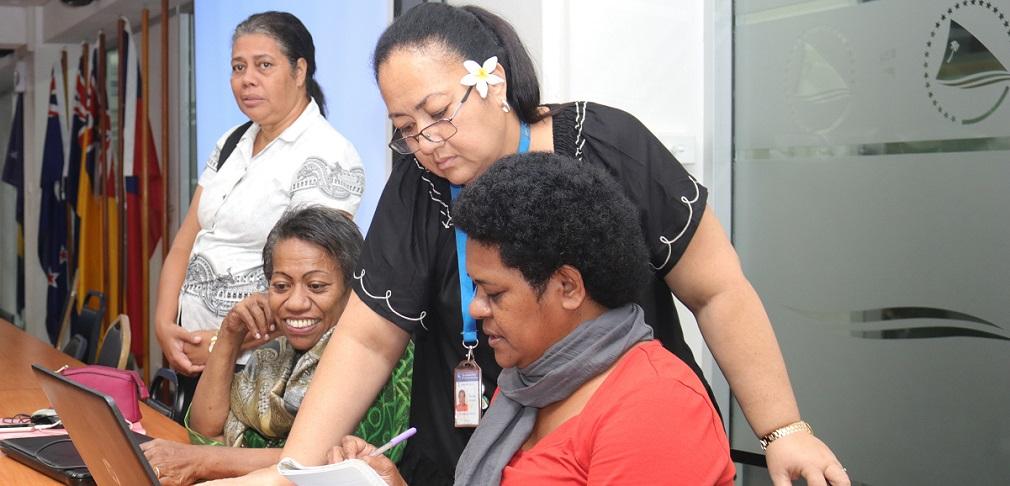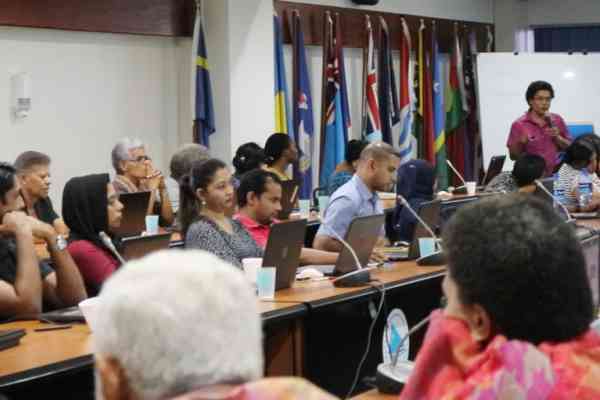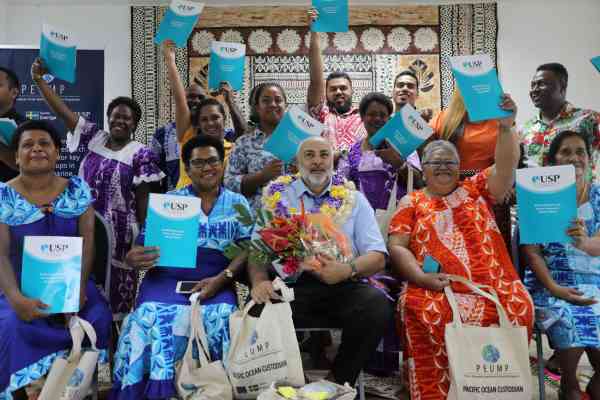« Face à l’évolution rapide du monde, nous devons sans cesse développer de nouvelles compétences. C’est le cas des personnes expérimentées pour rester au niveau dans leur domaine ou des jeunes actifs devant se former pour relever de nouveaux défis. » Michelle Belisle, Directrice du Programme pour l’évaluation et la qualité de l’enseignement de la CPS.
(article complet disponible en anglais uniquement)
An agile, expedient solution for a skilled Pacific
Prior to the COVID19 pandemic, rapidly evolving technologies and industries created strong demand for upskilling and retraining in many areas of work. How has this demand been impacted by the onslaught of this respiratory virus and what does it mean for the future of work? Should upskilling and retraining still be a priority for the Pacific?
The truth is COVID-19 has only served to reemphasize the importance of investing in upskilling programmes. While the pandemic is currently everyone’s primary focus, it is not the first, nor will it be the last example of a crisis that requires a flexible, skilled and diverse workforce.
“With the world around us rapidly changing, new skill sets are needed all the time for experienced workers to remain at the top of their fields and for new entries into the workforce to acquire the skills they need to meet new challenges,” says Dr Michelle Belisle, Director of the Pacific Community's (SPC) Educational Quality and Assessment Programme (EQAP).
To keep up with the changing skills requirements, more Pacific islanders are turning to micro-qualifications. “Micro-qualifications allow people to gain skills over short time periods and stay in the work force while they do so,” says Dr Belisle. “EQAP is the only agency in the Pacific region that accredits micro-qualifications, and we have seen interest in them growing quickly.”
Micro-qualifications are units of assessed learning that are significantly smaller than the traditional forms of accredited learning, like diplomas or degrees. They can either be stand-alone units or can contribute to a degree qualification, thus allowing learners more flexibility and pathways toward higher education.
EQAP’s Qualifications team leader Rajendra Prasad, who leads the programme’s micro-qualifications work, says education institutions have been eager to have their short courses assessed and even redesigned to ensure they have accreditation. A few workplaces, including a regional banking institution, a Pacific inter-governmental fisheries organisation and a national meteorological department, have also sought accreditation of their inhouse training. “We know that there are so many other organisations that provide training relevant to their workers, but in many cases, these trainings are not accredited because of the fact that there were not many agencies before that were doing this,” says Mr Prasad. “We are now here to help out in this area and so we will provide any support that these organisations need to ensure that the short courses are appropriately packaged as micro-qualifications, and accredited and put on the (Pacific Qualifications) Framework.”
In the Pacific, only six countries have established quality assurance agencies: Tonga, Samoa, Vanuatu, Fiji, Solomon Islands and Papua New Guinea. “All these agencies actually quality-assure full qualifications and the providers who deliver the qualifications,” explains Mr Prasad. “They have not quite looked at the accreditation of short courses, and that’s the kind of gap we fill.”
One of the most recent entities to have its short trainings assessed for accreditation is the Fiji National University’s National Training and Productivity Centre (NTPC). Its project management short course, which has been offered for the past five years, was accredited by EQAP last month. The Centre’s manager for Productivity and Innovation, Amrish Narayan, describes the accreditation process as one of excellent quality. He says the industry engagement aspect of the process is impressive. It required his team to find four project managers from different organisations to assess the course and to “give valuable feedback to improve the programme”. The training centre’s prior practice was to seek feedback from a company’s human resources division instead of the professionals in the field of study.
Another strong feature he singled out is that the micro-qualifications is a regional accreditation. “It will not only attract more people, but we have assurance that the qualification has been benchmarked at a regional level,” says Mr Narayan. This means that the learnings from the course are applicable and relevant to workplaces in the region, and not just in Fiji.
In an earlier interview with Radio Australia, Dr Belisle raised that micro-qualifications could be the solution to quickly upskilling Pacific work forces if more professional skills trainings become accredited. "It's about making things available to more people more readily,” she says. “Countries won’t have to look far afield to find skilled workers, because they’ll have them right there at home."


